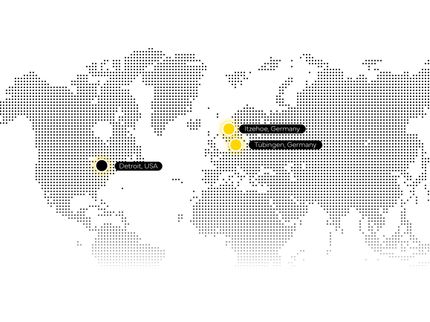Pooling European competence in the development of world-class next-generation batteries
Networking for top performance
New battery technologies that are affordable and sustainable over the entire life cycle are crucial to achieve the goals of the European Green Deal. As part of the EU project TwinVECTOR, the centre of excellence at the Tomas Bata University (TBU) in Zlín, Czech Republic, is to be expanded technically and institutionally with the support of the consortium partners to enable multidisciplinary national and international project teams to network, create synergies and work together on the further development of battery energy storage technologies.

EU Project TwinVECTOR – Pooling European competence in the development of world-class next-generation batteries
© ZETHA_WORK/AdobeStock
The EU is supporting the recently launched project with €1.3 million over a period of three years. Five partners from the Czech Republic, Germany, Finland and Austria are participating in the project coordinated by the Tomas Bata University.
The demand for batteries is growing rapidly and is expected to grow 14-fold by 2030 compared to 2018. According to requirements from Brussels, batteries used in the EU must have a high charge density and capacity, as well as be cost-efficient, durable, safe and reusable. They must also be sustainably produced with the least possible environmental impact from materials extracted in full compliance with social and environmental standards.
Networking for top performance
The consortium behind the EU project TwinVECTOR is addressing this challenge and is jointly expanding the centre of excellence at the Tomas Bata University (TBU). Networking with international players from science and business is intended to create a pool of knowledge for new battery energy storage technologies, from laboratory to market. This involves the sustainable and responsible production of battery energy storage systems over the entire life cycle. The batteries should have a higher energy density with lower costs and higher sustainability in production. The focus is on developing sustainable (e.g. renewable or bio-based) materials for lithium-ion batteries. In order to strengthen the TBU's research activities, the project partners are contributing their various areas of expertise. For instance, VTT Technical Research Centre of Finland Ltd (VTT, Finland) supports the consortium with its expertise in material development, while the Karlsruhe Institute of Technology (KIT, Germany) provides its expertise in the field of life cycle analysis and the AIT Austrian Institute of Technology (AIT, Austria) offers its knowledge in energy storage systems.
Strengthening research capacity through institutional cooperation
TwinVECTOR is financed as part of the "Twinning" funding scheme of the EU (https://neighbourhood-enlargement.ec.europa.eu/funding-and-technical-assistance/...), which supports institutional cooperation and the exchange of best practices between the public administrations of the EU member states and beneficiary or partner countries. Within this framework, the TwinVECTOR consortium wishes to tackle the topic of battery development and production in a multidisciplinary manner and bring together national and international project teams from science and industry in the areas of chemistry, electronics, automotive and beyond.
This pooling of research capacities is intended to generate new research ideas that are reflected in scientific publications, conferences, international networking, EU projects and, ultimately, new products on the market. The aim is also to develop an exchange between the individual partner institutions in order, on the one hand, to sharpen the research profile of the individual scientists at the TBU and, on the other, to expand the expertise of the administrative staff. Workshops are to be organized on various topics, for instance on EU research funding (incl. EU application writing and EU project management). In addition, training on methodological trends in the individual research areas of the consortium partners (e.g. life cycle assessment and techno-economics) will also be provided. The project partner Bavarian Research Alliance GmbH (BayFOR) will provide support in all matters relating to research funding.
The Czech Republic is one of the "widening countries" in the EU, i.e. it is a country with capacity for innovation and research that can be expanded. The networking activities of the partner institutions as part of the TwinVECTOR project are intended to enable the TBU to successfully participate in international research projects, expand its networking activities and increase its attractiveness as a centre of research. "By intensively exchanging ideas, research results and services as well as through institutional cooperation, we are not only able to increase the visibility of the TBU in the European research area, but also support the EU in making European battery technology competitive and achieving its goals within the framework of the Green Deal," says the coordinator of the TwinVECTOR project Dr Viera Pechancova at the Tomas Bata University. Not only the TBU, but also the other project partners benefit from the TwinVECTOR project. The cooperation will create and strengthen long-term partnerships with the participating partners so that new relationships of collaboration can be established for further research projects beyond the project.
Other news from the department science
These products might interest you
Most read news
More news from our other portals
See the theme worlds for related content
Topic World Battery Technology
The topic world Battery Technology combines relevant knowledge in a unique way. Here you will find everything about suppliers and their products, webinars, white papers, catalogs and brochures.

Topic World Battery Technology
The topic world Battery Technology combines relevant knowledge in a unique way. Here you will find everything about suppliers and their products, webinars, white papers, catalogs and brochures.




























































